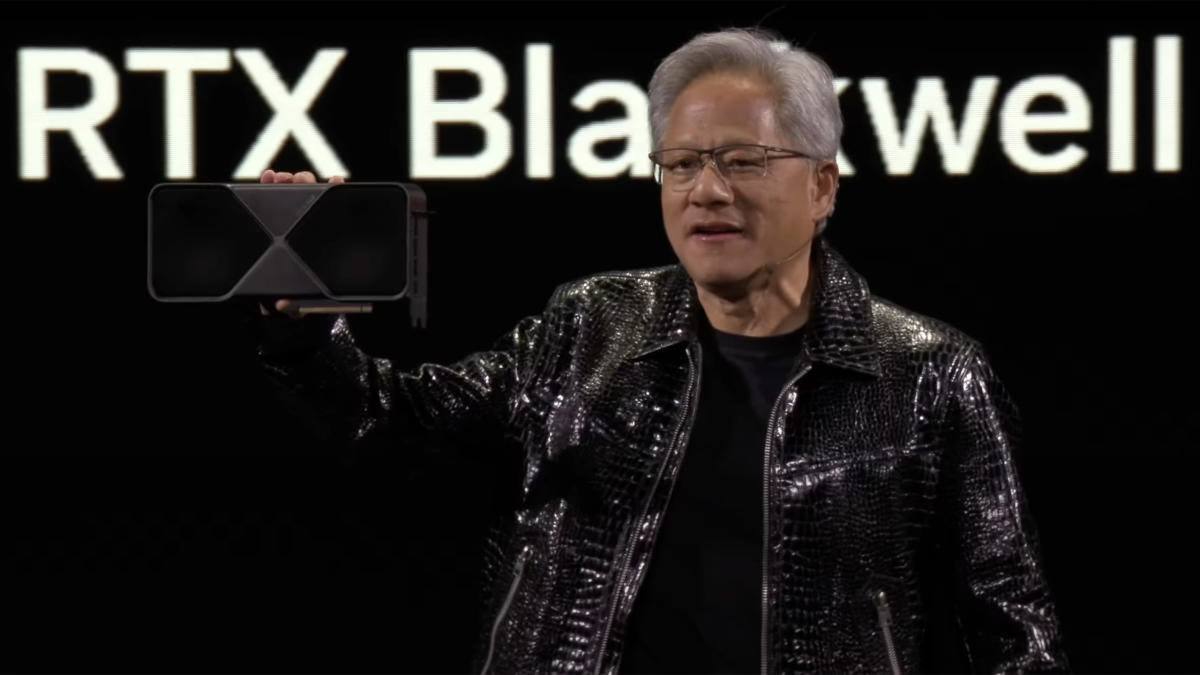This page may contain affiliate links. When you click an affiliate link, we get a small compensation at no cost to you. As an Amazon Associate I earn from qualifying purchases.
On the same day NVIDIA briefly became the most valuable company in the world, CEO Jensen Huang took to the CES 2025 stage to announce the company’s new, long-awaited Blackwell family of graphic cards. The first salvo of RTX 50 series GPU will arrive in January, with pricing starting at $549 for the RTX 5070 and topping out at an eye-watering $1,999 for the flagship RTX 5090. In between those are the $749 RTX 5070 Ti and $999 RTX 5080. Laptop variants of the desktop GPUs will follow in March, with pricing there starting at $1,299 for 5070-equipped PCs.
As for specs, the RTX 5090 Founders Edition will feature 32GB of GDDR7 RAM and 21,760 CUDA cores. Depending on the game, NVIDIA says the 5090 will deliver as much as twice the relative performance, with RT-intensive titles like Alan Wake 2 and Cyberpunk 2077 seeing the largest gains. In the latter, for instance, NVIDIA shared a video that showed the game running at 242 frames per second on the 5090 compared to a relatively paltry 109 fps on the RTX 4090.
Of course, the performance uplift consumers can expect will depend, in large part, on whether a game supports NVIDIA’s new DLSS 4 tech. Looking at the performance charts
NVIDIA kicked off the Blackwell portion of its CES presentation with a demo of a next-generation Assassin’s Creed game featuring the most realistic ray-traced graphics the series has ever featured. “All of this, with AI, is the house that GeForce built,” said Huang, wearing a new snakeskin-like jacket instead of his signature leather jacket. “Now, AI is coming home to GeForce.”
RTX 5090 | RTX 5080 | RTX 5070 Ti | RTX 5070 | RTX 4090 | |
Architecture | Blackwell | Blackwell | Blackwell | Blackwell | Ada Lovelace |
DLSS version | DLSS 4 | DLSS 4 | DLSS 4 | DLSS 4 | DLSS 3 |
AI TOPS | 3,352 | 1,801 | 1,406 | 988 | 1,321 |
Tensor Cores | 5th Gen | 5th Gen | 5th Gen | 5th Gen | 4th Gen |
Ray Tracing Cores | 4th Gen | 4th Gen | 4th Gen | 4th Gen | 3rd Gen |
Memory Configuration | 32 GB GDDR7 | 16 GB GDDR7 | 16 GB GDDR7 | 12 GB GDDR7 | 24 GB GDDR6X |
Memory Bandwidth | 1,792 GB/sec | 960 GB/sec | 896 GB/sec | 672 GB/sec | 1,008 GB/sec |
Developing…

